Database software is built to create databases and store, manage, change, search, and extract the data kept within it. A good database software program is also known as a database management system. Here, we have a list of popular and must-use databases that you should use as per the requirement.
1. Oracle Database
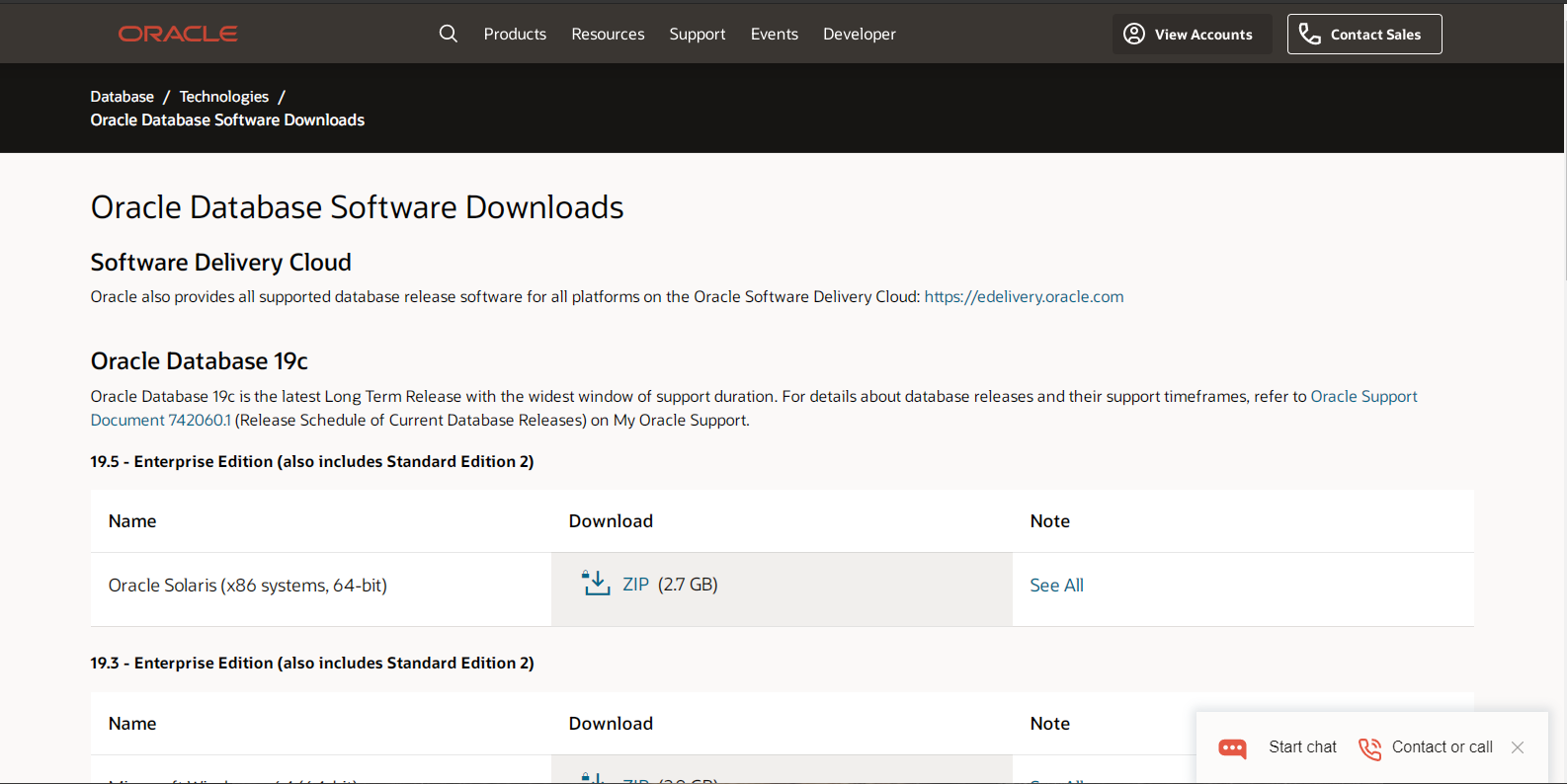
Oracle Database is a popular database around the globe. Oracle is considered one of the most mature DBMS companies in the world.
Features:
-
Oracle Database is reliable and efficient.
-
It is secure and scalable.
-
Operates on the premises and the cloud.
-
Offers excellent supports for integrations.
-
There are many specialists and experts available.
Link: https://www.oracle.com/
2. IBM DB2
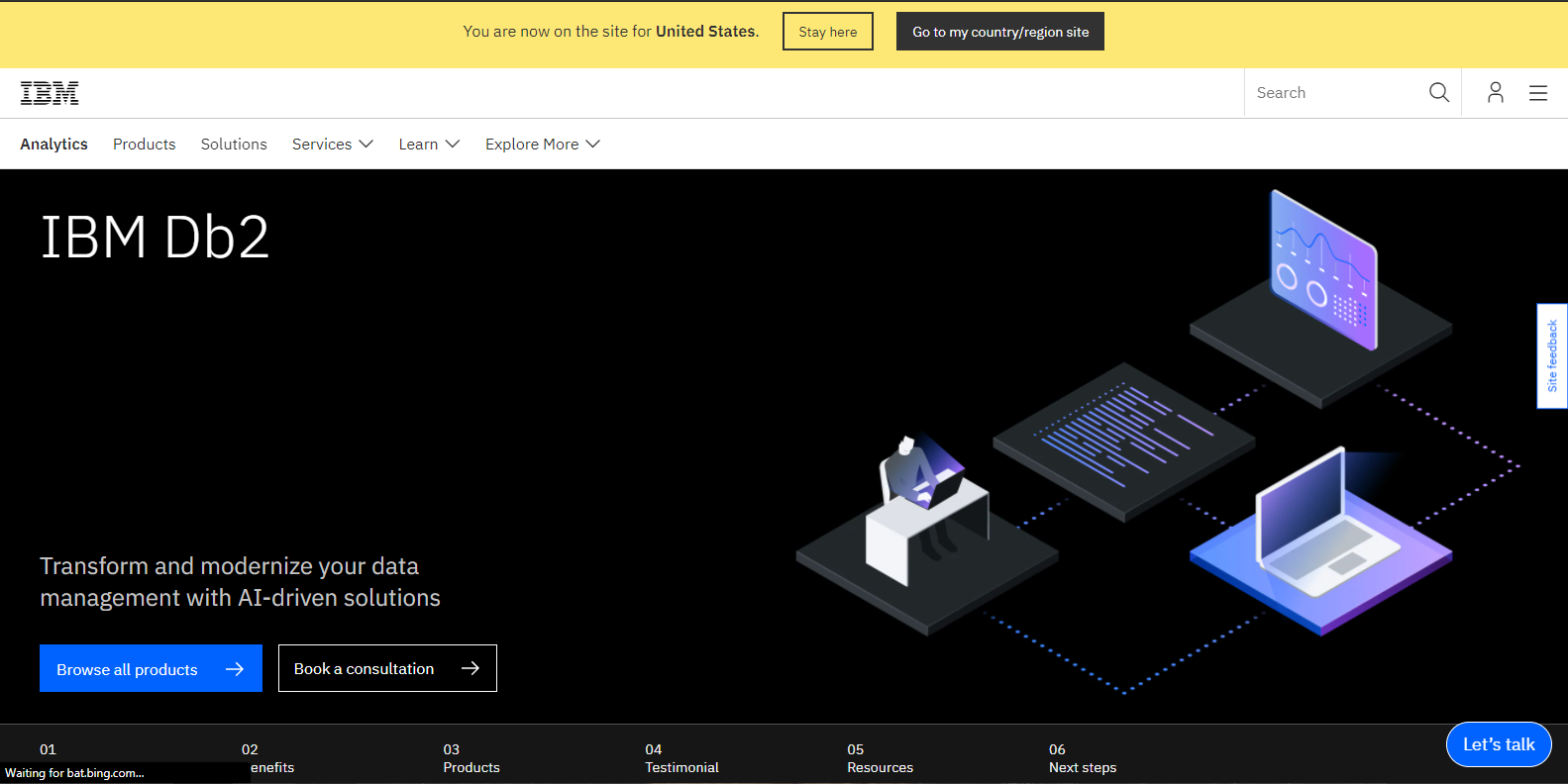
IBM DB2 is one of the easiest database software to use and install. Just like Oracle, it is also considered a mature player in the database market.
Features:
-
IBM D2 is a relational database management tool.
-
It has wide integration tools.
-
Provides AI-powered insights to the users.
-
Provides elastic scaling to your data.
Link: https://www.ibm.com/analytics/db2
3. MySQL
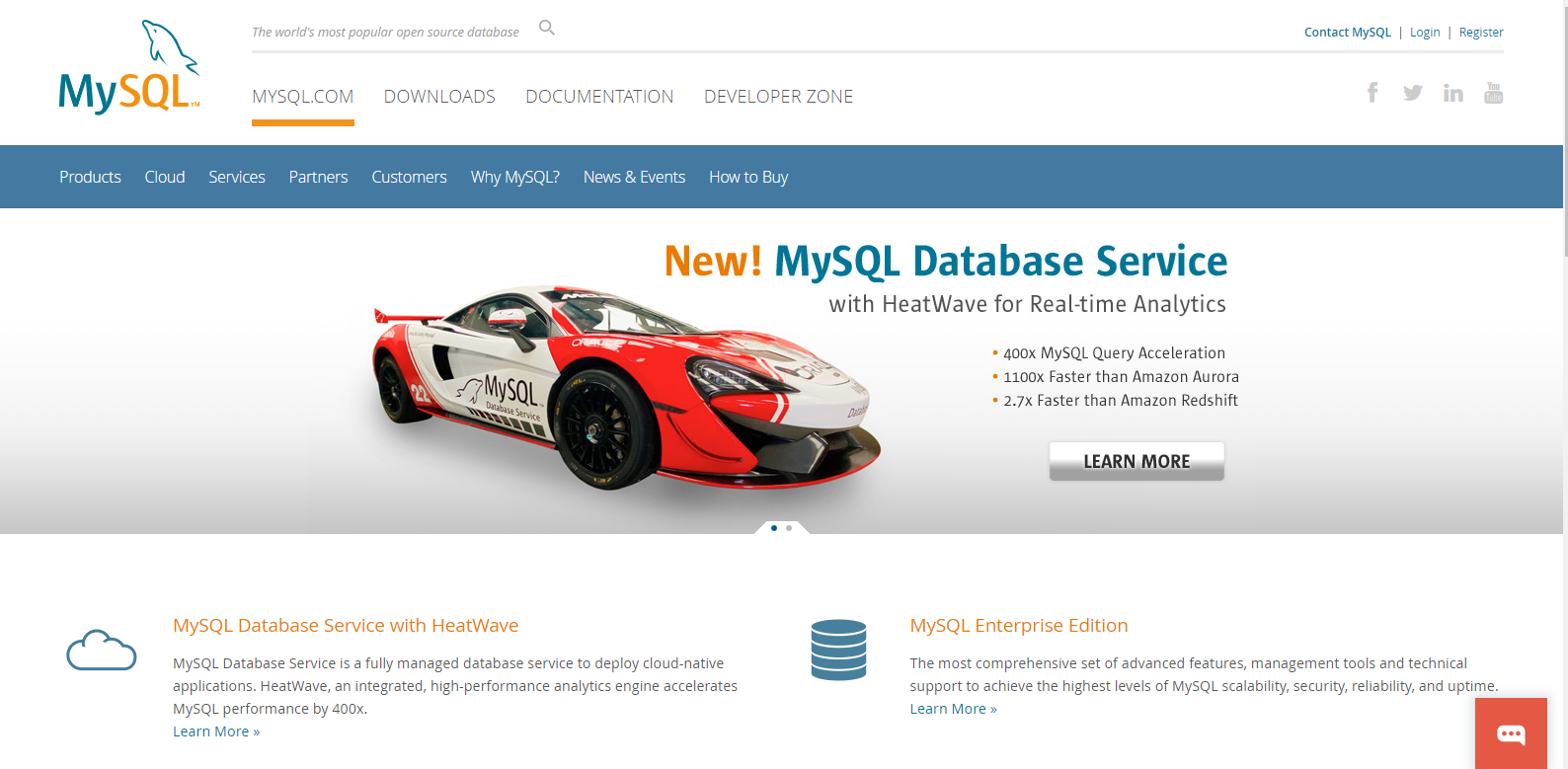
MySQL is the most popular open-source database system software because of the outfit's distinctive features. This software is bundled in web hosting provider packages, making it the first known database for several programmers.
Features:
-
MySQL database software is cost-effective.
-
It is an Open-source platform.
-
User-friendly interface.
-
Offers extensive scalability.
-
You can run the software on-premise or on the cloud.
Link: https://www.mysql.com/
4. MongoDB
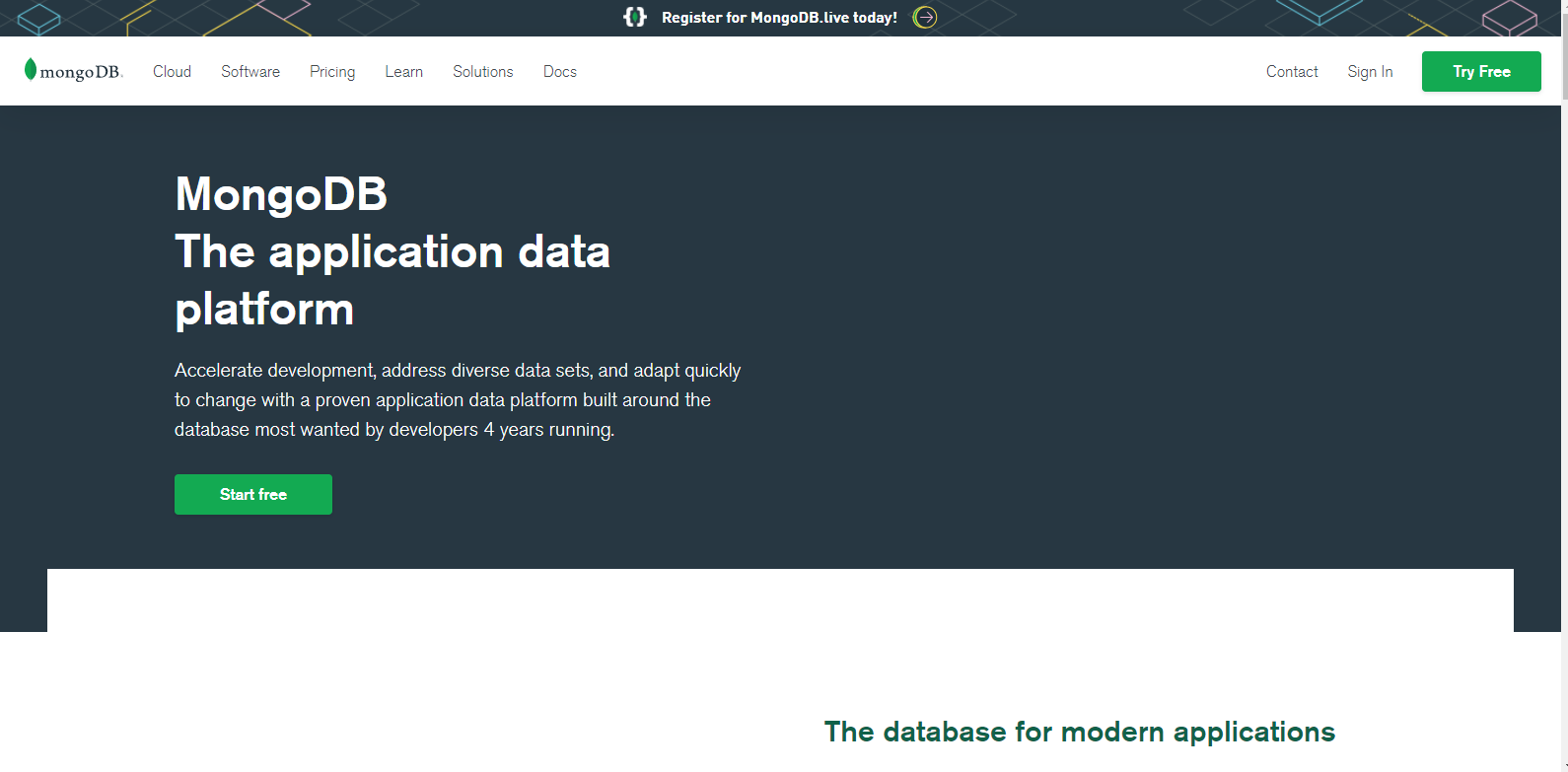
Used for high-volume information storage, MongoDB is a document-oriented software program. It is an open-source database that came to light around the mid-2000s. It is one of the best free databases that fall under the category of a NoSQL database.
Features:
-
Best databases under the category of NoSQL database management software.
-
It is distributed and horizontally scalable.
-
Uses simple syntax which is easy to understand.
Link: https://www.mongodb.com/
5. Microsoft SQL Server
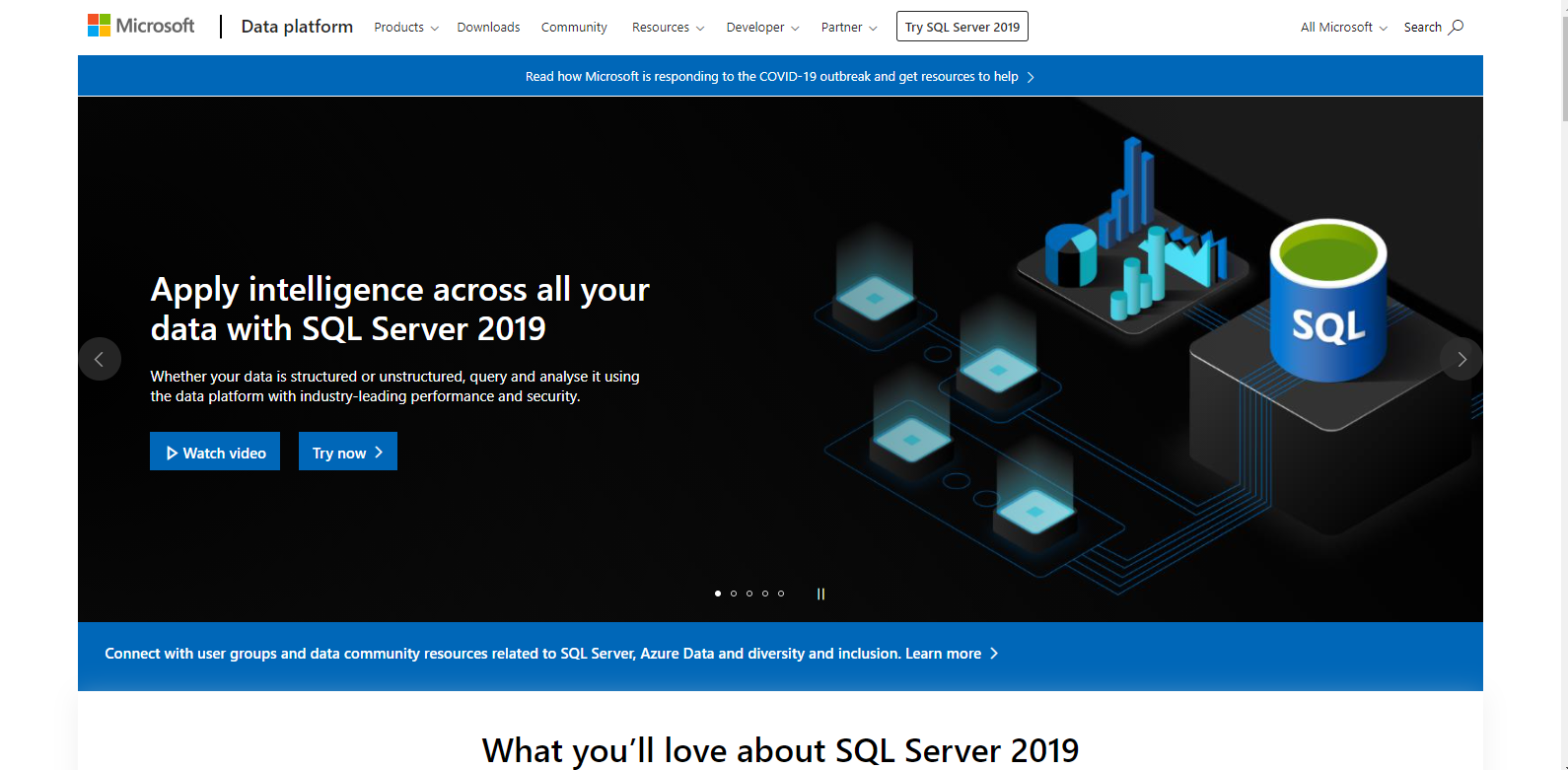
Microsoft SQL Server is one of the top databases in the market which is developed by Microsoft. It is a relational databases software program. You can host it on-premise or in the Cloud. It offers a plethora of services, tools, and applications to the users.
Features:
-
Automation and security routines are offered to uses.
-
Loaded with additional tools and applications.
-
Microsoft SQL Server offers flexible editions.
-
You can have access to rich and interactive Power BI reports.
Link: https://bit.ly/3uS6cxj
6. CouchDB
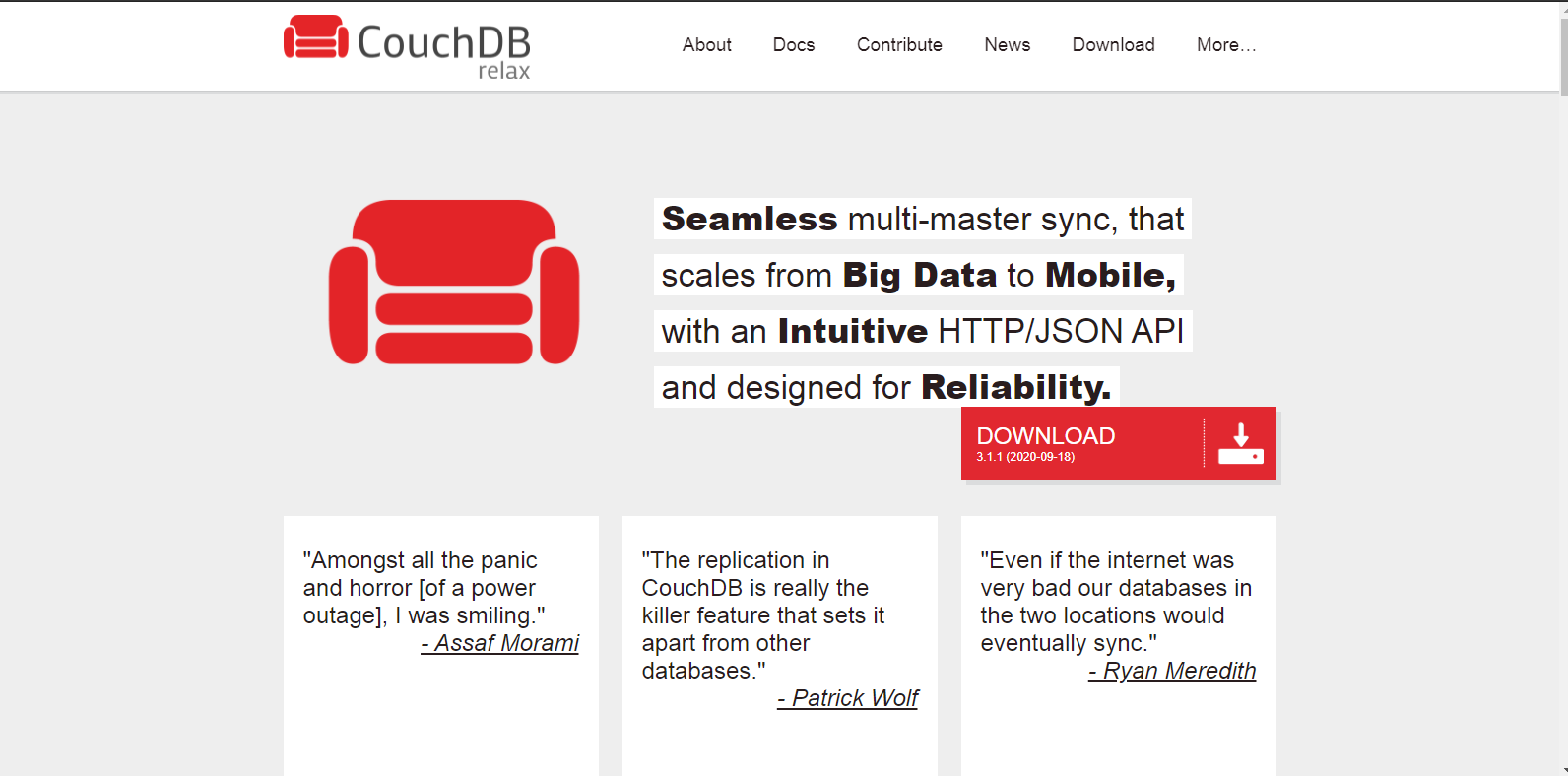
CouchDB is open-source database software that stores data on your server or with your choice of leading service provider. This program is based on the common standards to access your important data.
Features:
-
You can run a logical database server on any virtual machine.
-
This tool operates with external tools such as load balancers, HTTP, or proxy servers.
-
Authentication and session support are provided.
-
Saves information redundantly.
Link: https://couchdb.apache.org/
7. PostgreSQL
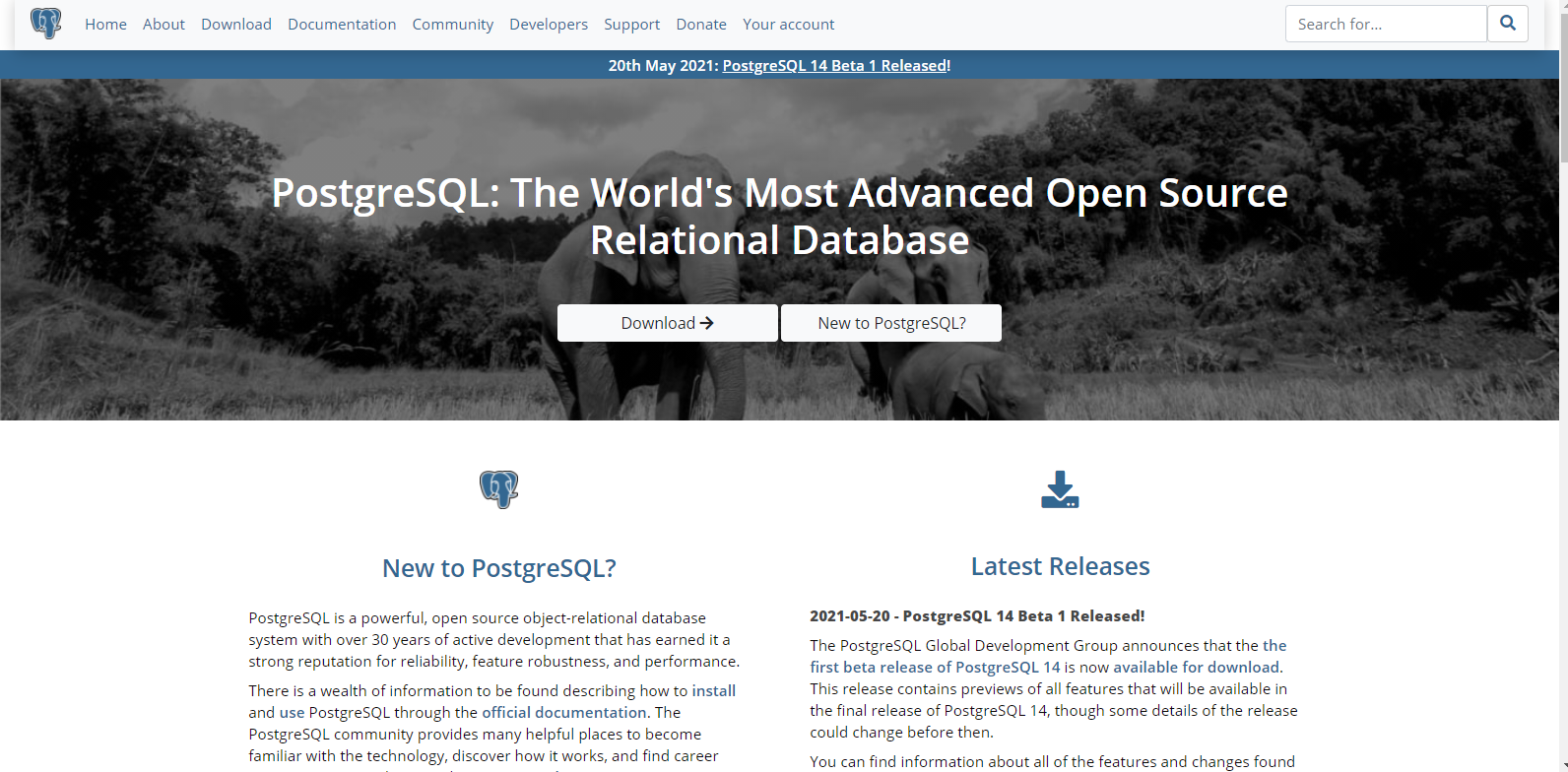
PostgreSQL is free database software that is backed by a community of experienced developers. There are numerous features such as transactions with Atomicity, Consistency, Isolation, Durability (ACID) properties amongst others.
Features:
-
PostgreSQL works well with various platforms using all major languages and middleware.
-
It has a standby server and high availability.
-
It offers the most sophisticated locking mechanism amongst all other options.
-
Multi-version concurrency control is supported.
-
Client-server support is also offered.
Link: https://www.postgresql.org/
8. Cassandra
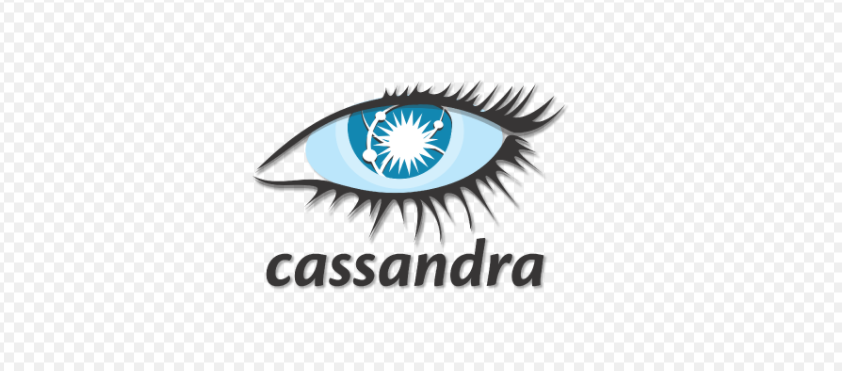
Cassandra is built to manage excessive data across a wide range of servers. This free tool provides support for replicating across multiple data centers.
Features:
-
Your data will be copied to numerous nodes to offer a fault-tolerance system.
-
No network bottlenecks present in this tool as every node in the cluster is separate.
-
The tool supports contracts and services from third parties of your choice.
-
Cassandra offers synchronous or asynchronous replication for the update and you are allowed to choose from these two options.
Link: http://cassandra.apache.org/
9. OrientDB
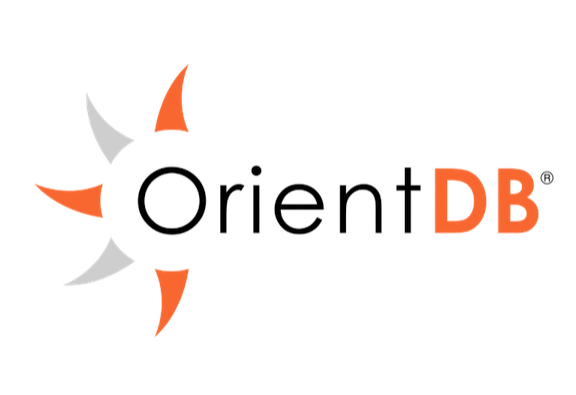
You can unlock the power of graph databases without the need of using multiple systems to handle other data types with OrientDB. Your performance and security are increased while supporting scalability.
Features:
-
It has a Unified Multi-Model API for quicker deployment.
-
TinkerPop 3 features are for the state of fast and effective upgrades.
-
An enhanced query planner is also offered.
Link: https://www.orientdb.org/
10. MariaDB
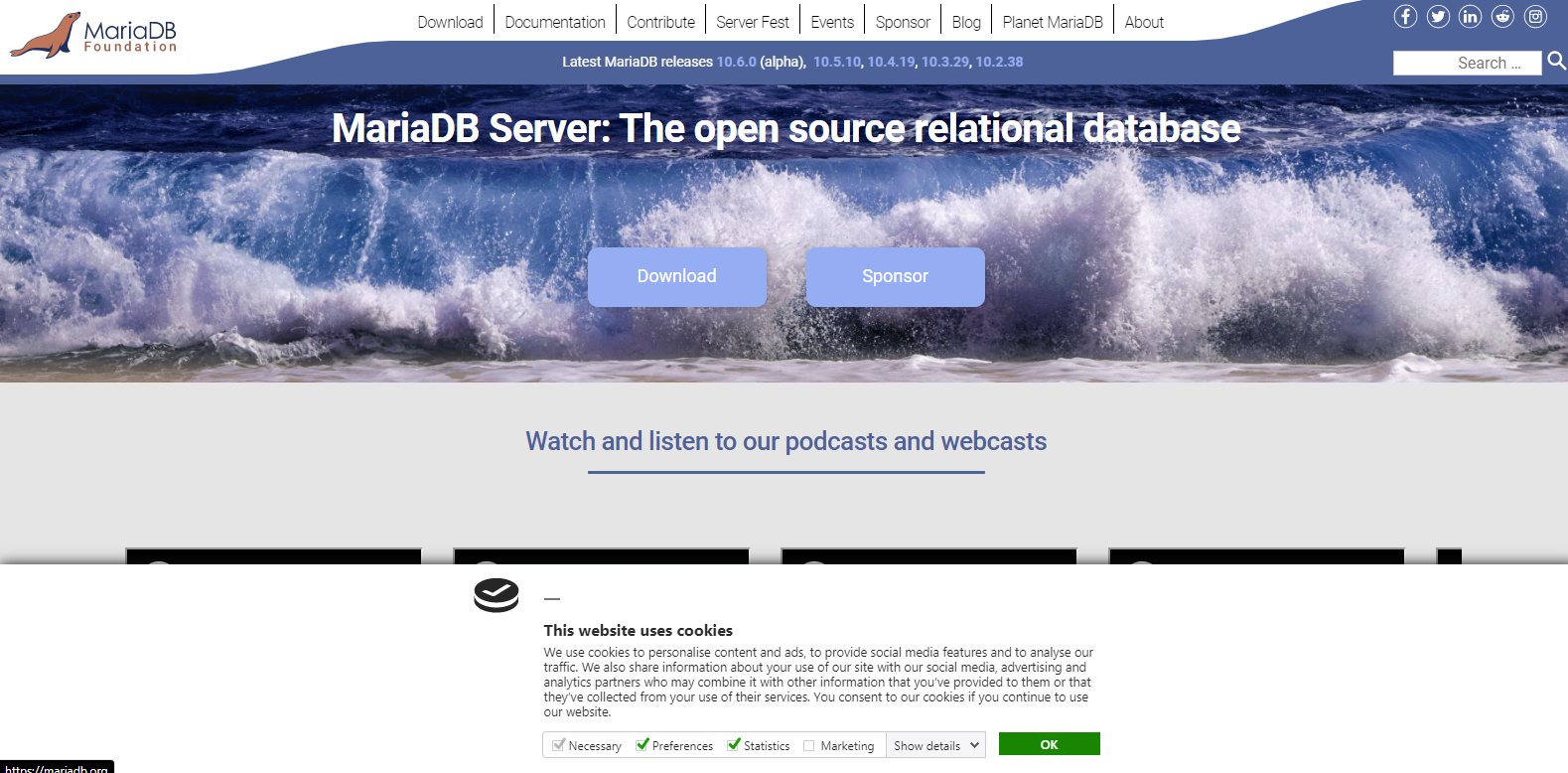
A fork of MySQL database management system, MariaDB is created by its original developers. This DB software offers data processing capabilities for both small and enterprise tasks.
Features:
-
GPL, BSD, or LGPL licenses are offered to it.
-
MariaDB has many storage engines.
-
Considered best open source database software that provides the Galera cluster technology.
-
This tool runs well on different operating systems.
-
It also supports numerous programming languages.
Link: https://mariadb.org/
Conclusion:
You must keep certain points while choosing the best Database Software. Look out for, Security features, Integration with other software, Scalability, and Performance. The best database software works well with huge data.